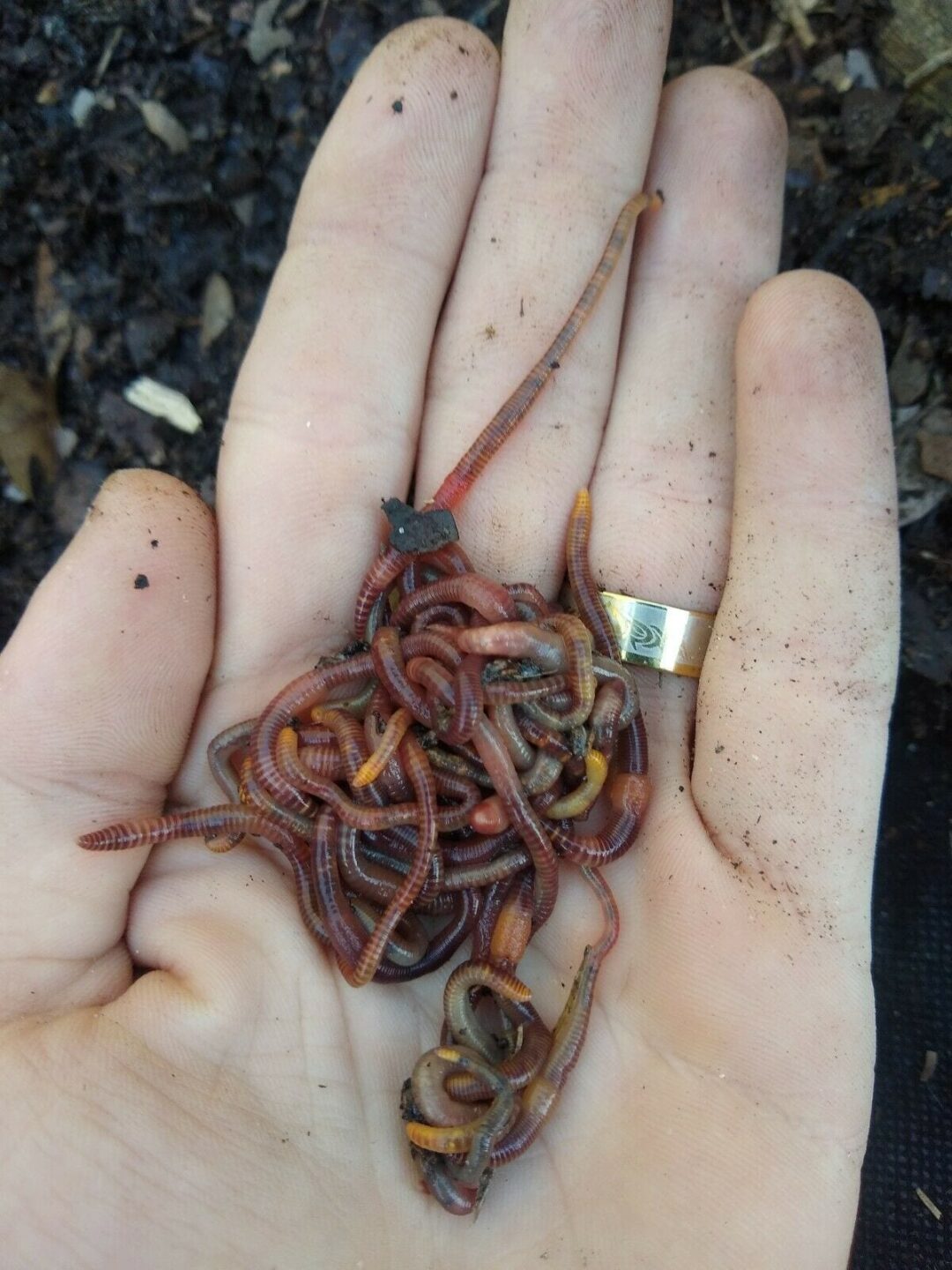Red Wiggler Express: High-Quality Bait for a Enjoyable Fishing Day
Open the Secrets of Red Wigglers: Your Overview to Composting Success
The combination of red wigglers into composting methods provides a significant possibility for boosting dirt health and promoting sustainability. These microorganisms are not simply reliable recyclers of natural waste; they use a myriad of advantages that can change yard management. Recognizing their requirements and habits is vital for maximizing their possibility, from establishing up an appropriate worm container to feeding them the appropriate materials. As we explore the crucial parts of successful vermicomposting, one may wonder just how these tiny creatures can bring about a much more dynamic and effective garden environment.

What Are Red Wigglers?
(Red Wiggler Express)Red wigglers, clinically referred to as Eisenia fetida, are a varieties of earthworm mainly utilized in composting due to their impressive capability to decay raw material effectively. These worms are defined by their reddish-brown coloration and a fractional body, commonly measuring in between 3 to 4 inches in size. Unlike various other earthworm species, red wigglers prosper in rich, natural environments, making them ideal for vermicomposting systems.
Belonging To The United States And copyright, they are typically located in decomposing fallen leaves and compost heap, where they play a critical duty in nutrient recycling. Their adaptation to living in a wet, cardiovascular setting allows them to eat big amounts of organic waste, simplifying into nutrient-rich spreadings that boost dirt health and wellness.
Red wigglers replicate quickly, with a solitary worm efficient in producing numerous cocoons every week, each consisting of numerous hatchlings. This quick reproduction price adds to their effectiveness in composting procedures. They favor temperature levels in between 60 ° F and 80 ° F, and their task degree enhances dramatically within this array, more aiding in the decay process. Comprehending the biology and actions of red wigglers is crucial for maximizing their capacity in composting applications.
Benefits of Utilizing Red Wigglers
Taking advantage of the power of red wigglers in composting supplies various benefits that enhance dirt wellness and promote lasting waste administration. These exceptional organisms successfully damage down raw material, changing kitchen area scraps and lawn waste into nutrient-rich vermicompost. This finished product is extremely beneficial for plant development, as it improves dirt structure, enhances dampness retention, and boosts nutrient schedule.

(Red Wiggler Express)In addition, the existence of red wigglers in your composting system can increase the composting process, generating high-quality compost in a fraction of the moment compared to typical techniques. The castings generated by these worms are likewise including valuable microorganisms that additionally improve the dirt environment.
Setting Up Your Worm Bin
Developing an effective worm container is a straightforward procedure that can significantly boost your composting efforts. Worm bins can be made from plastic storage space bins, wood boxes, or readily offered worm containers.
Following, prepare the bed linens product, which serves as the worms' habitat. A mix of shredded newspaper, cardboard, and coconut coir works well, providing a comfortable atmosphere for the worms.

Feeding Your Red Wigglers
To make sure the wellness and efficiency of your red wigglers, it is necessary to offer them with a balanced diet that fulfills their nutritional requirements. Red wigglers thrive on a varied array of natural materials, which not just supply needed nutrients however likewise advertise effective composting.
Begin by integrating kitchen area scraps such as veggie peels, fruit cores, and coffee premises. Avoid citrus fruits, onions, and garlic, as these can be harmful to worm wellness. In addition, present shredded paper, cardboard, and completely dry fallen leaves to produce a well-aerated environment.
Feeding regularity should be checked; usually, worms can take in half their body weight in food weekly. It is vital to prevent overfeeding, as excess food can bring about unpleasant smells and bring in parasites. A great method is to include food in tiny amounts, permitting worms to refine it before presenting a lot more.
Keeping moisture levels is also crucial; the bed linens must be damp however not soggy. Lastly, be sure to frequently inspect the temperature level and pH levels of the bin to make certain an ideal setting for your red wigglers, ultimately improving their composting performance.
Harvesting and Making Use Of Compost
A successful composting process with red wigglers finishes in the rich, dark garden compost called vermicompost, which can dramatically improve soil health and wellness and plant growth. Collecting this nutrient-dense product typically occurs every 3 to 6 months, relying on the dimension of your system and the quantity of organic issue being processed.
To collect, carefully different the garden compost from the worms and any type of undecomposed products. One effective approach includes relocating the materials of the bin to one side and including fresh bed linens and food to the vacant space, motivating the worms to move. After a couple of days, the garden compost can be collected from the opposite side.
It is vital to utilize vermicompost appropriately to optimize its benefits. By including vermicompost into your gardening regimen, you not just recycle organic waste yet additionally create a growing environment that sustains over here lasting horticulture methods.
Verdict
In recap, red wigglers offer as phenomenal allies in composting efforts, transforming organic waste right into nutrient-rich vermicompost (Red Wiggler Express). Their unique biological qualities and efficient waste handling abilities add dramatically to lasting horticulture practices. By comprehending the ideal conditions for their environment, feeding requirements, and garden compost harvesting strategies, gardeners can improve dirt health and wellness and advertise plant vigor. Accepting vermicomposting not just minimizes landfill waste however additionally fosters an extra eco liable technique to gardening and resource monitoring.